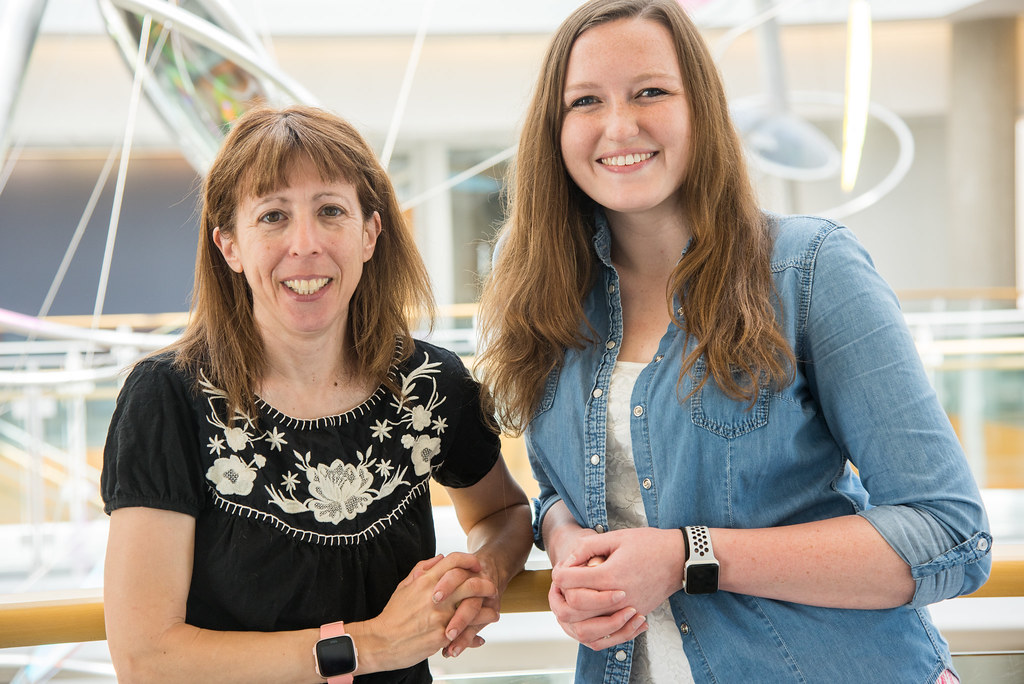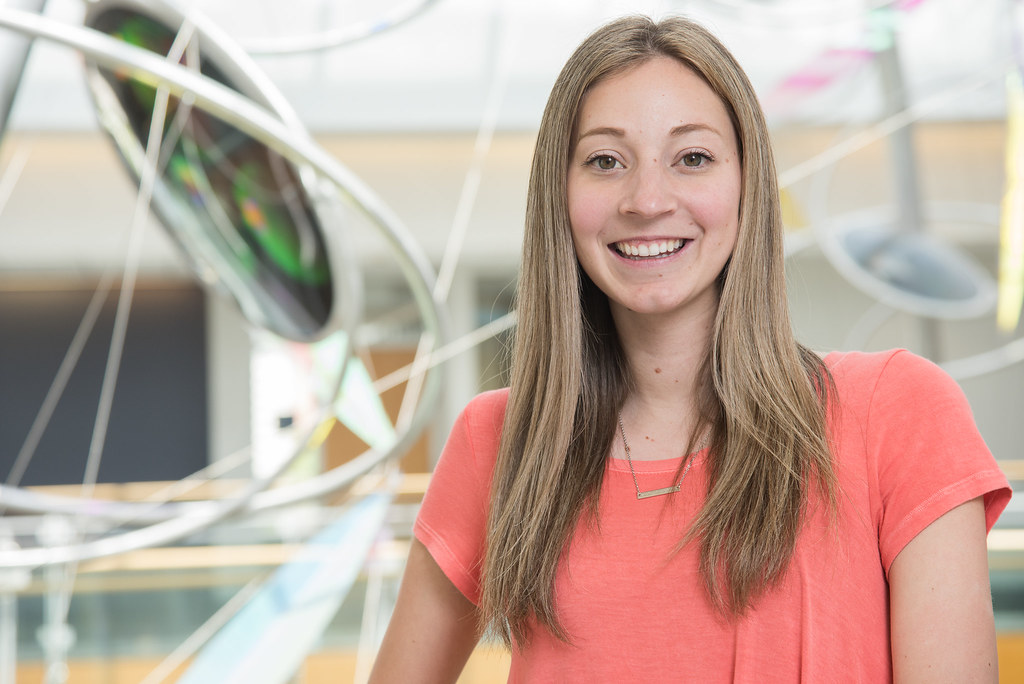Published on
Updated on
As Rosenfeld’s students graduate, awards and future plans celebrate excellence

By Mariah Cox | Bond LSC
Brittney Marshall, a soon-to-be-graduating senior from MU’s College of Arts and Sciences with a degree in biological sciences, received one of 15 University of Missouri Awards for Academic Distinction as well as the 2019 Outstanding Senior in Biological Sciences Award.
Marshall started research three years ago in Bond Life Science Center as a sophomore in Cheryl Rosenfeld’s lab. Rosenfeld, her mentor, nominated her for the award along with Thomas Phillips, one of her professors, that celebrates “evidence of extraordinary intellectual curiosity, actively seeking knowledge beyond the classroom and striving to share that knowledge with public audiences for a broader impact, and significantly contributing to the academic atmosphere at the University of Missouri.”
And Marshall has done just that.
Marshall worked with Rosenfeld to examine how prenatal exposure to bisphenol A (BPA) and genistein, a phytoestrogen found in soy, affect behavior in California mice and the gut microbiome and metabolome.
“We already knew BPA was bad because it was an estrogen mimic that was causing certain effects, so we wanted to see if more natural versions of similar compounds like genistein from soy would compare,” Marshall said. “Some of the behavior that we are seeing with Genistein actually differs from BPA, which we were surprised.”
Working off of the knowledge that BPA can cause autism-like behaviors such as decreased socialization and cognition, the researchers were able to compare those behaviors with mice exposed to genistein.
In order to quantify the results, they measured the mice’s sociability and their willingness to interact with stranger mice. They also utilized the Barnes maze test, to measure their spatial cognition and memory, and the elevated plus maze test, to measure their anxiety when placed on top of a tall platform.
Outside of the lab, Marshall spent her time volunteering at various organizations in Columbia and Boonville, such as a center for at-risk youth, a therapeutic horse riding facility and a hospital.
“Balancing everything can be really challenging between my academics, research and volunteering,” Marshall said. “I know in the end, it’s all going to be worth it because I’m just trying to make the most of my four years here and I feel like I have.”
However, Marshall isn’t quite done with Columbia yet.
In the fall, she will be attending the MU School of Medicine in hopes of one day becoming a primary care physician or an OB-GYN. She enjoys the idea of having long-term relationships with her patients and recognizes the growing need for primary care, especially in rural areas.
“I’ve wanted to be a doctor since I was a little kid, so I’ve been doing everything in my power to get there,” Marshall said. “I just remember learning about cells for the first time in middle school and it just blew my mind that you have all of these teeny tiny structures doing all these super complicated mechanisms in your body and there are millions of cells doing that.”
Marshall has made the most of her time at MU, and she encourages others to do the same.
“College flies by really quickly, so if there’s an opportunity that you think you might want to take advantage of, now is definitely the time to do it,” Marshall said. “I think you’ll be glad that you did. You might be a little busy but I think that the experience and the memories are worth it.”

Another one of Rosenfeld’s undergraduate researchers, Madison Ortega, will also graduate and be moving on to bigger things. The Biological Sciences senior recently was accepted into a two-year National Institutes of Health post-baccalaureate program at Research Triangle Park in North Carolina.
Similar to Marshall, Ortega has been researching in Rosenfeld’s lab for three years now. Unlike Marshall, Ortega is unsure of her future career path. She sees her post-baccalaureate program with the NIH as an opportunity to get more research underneath her belt while she figures out what the future has in store.
“I think it’s going to be nice taking, not a break, but a little time to explore research further, because I’ve been doing research for three-and-a-half years, but it’s always been part-time,” Ortega said. “I’ve never worked 40-hour weeks doing in-depth research, so I think this is going to be a good opportunity.”
When looking back, both students attribute their time in Rosenfeld’s lab as a key experience with their time at MU.
“Cheryl is really ambitious. She really pushes us to push ourselves and try to make the most of our experiences,” Marshall said. “Sometimes that’s obviously challenging but I’ve really appreciated it because I’ve had a lot of good opportunities come out it. She’s been more than willing to help us undergrads get a lot out of our experience.”